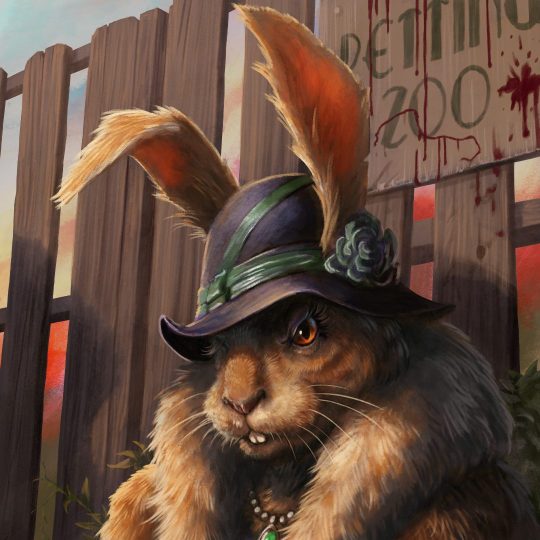Gaming Within a Relationship
Well … it happened. I got to introduce someone I was in a relationship with to a table top roleplaying game I was involved in. I have actually done this several times, and have witnessed it from others. In my years I have actually learned a few things from what I have done right and what I have done wrong. Now I have no claim to be a relationship expert, or a love guru, but I do have a road map pointing out a few pot holes on this rather hazardous road. Some things here are from my experience, some are from those gathered from other gamers. Let’s delve into a few things shall we?
What To Expect
 You can expect many different things when you begin gaming within a relationship. These things could be wildly different depending on if you are the player or the game master. If you are a player, you can expect to be expected to be responsible for the newbie, accusations of favoritism in your actions, and may even be expected by the significant other to make sure they are protected. As a game master you could face that favoritism, while paradoxically being expected by the significant other to favor them, not to mention the pressure you place on yourself to make things smooth to prevent conflict.
You can expect many different things when you begin gaming within a relationship. These things could be wildly different depending on if you are the player or the game master. If you are a player, you can expect to be expected to be responsible for the newbie, accusations of favoritism in your actions, and may even be expected by the significant other to make sure they are protected. As a game master you could face that favoritism, while paradoxically being expected by the significant other to favor them, not to mention the pressure you place on yourself to make things smooth to prevent conflict.
What to expect is a slippery slope that is hard to traverse. It’s a long, hard road, but there are ways to win. You can expect that people will talk, people will have feelings for good or ill, and that some will not be speak either way. The effect I have seen most, and this is almost universal, is the feelings of worry. Don’t be surprised if people think this will endanger your campaign, and with this I offer my first bit of advice: Don’t endanger your group for your relationship, and don’t risk your relationship for your group. I suggest you only start this with full consent of everyone established beforehand, as forcing the situation on anyone is only going to create a hostile environment with one loser … you.
What Not To Do
Here we go – the mistakes made by myself and others, those pitfalls you will have to traverse. Please be aware every bit of this are things I have actually seen or heard about. You can likely guess more than a few, but I will state them for those who think they know better and that their relationship is special.
As stated a few times, do not show favoritism. Dear lord, this can kill anyone’s joy in the game fast. It’s hard to feel important in the show when you are the Phil on the sideline of the Sam and Rebecca relationship (Cheers). By making everything about each other, you both draw any chance of the others getting that immersive feeling that gaming is famous for. I am certain you would not like it if every time you try to do something, you have to wait for the other two to finish whatever they are doing to get even a single action done. Bleh, it’s horrible! Furthermore, if you are going to sprinkle them with magic items or whatnot, make sure it is logical for the giving party to do so. Don’t metagame distribution of power, as it is a total buzz kill to play as a character with a +1 dagger while the game master’s significant other is running with +5 holy avenger.
Don’t over compensate. The significant other will not like being abused in game just to make a show how you are not showing favoritism. This will not end well for the game, let alone your relationship with anyone. This also just straight up makes you look like a butt head. There is not much to say about this other than don’t do it. No new player likes being head hunted, and you would not have liked it during your first days as a gamer, either.
Don’t focus the game around your significant other. In fact, I strongly suggest not focusing the story around a player ever, but this is a higher risk situation. Yes, it can have the stench of favoritism, but it can also put your entire campaign at risk. What happens if you put all your story hinging on the significant other’s character but they end up leaving the table because they found they don’t like gaming, or worse, you broke up? How will you re-engage the other players after you left them with the feeling of being not as important as another? How will you feel after you wasted time and effort on a story you will never get to use? I’m sure we all hate wasted time and projects.
Well, my roommate just wanted to emphasize his pet peeve on this subject. Don’t push gaming on someone who really isn’t into it. I am not sure how to phrase this, but you want to avoid encouraging someone who is only there for their significant other. Any gamer who is just phoning it in is an irritant to many, but the fact is it can stall the game, kill immersion into the game, and just annoy others when you have to constantly remind them of what to do or remind them that the game requires action to continue. I won’t lie, I did this before and it irritated my group to no end. Kinda hurt my feelings when it didn’t work out. Long story short, lots of wasted time and a campaign that was so tainted the entire group wanted to just dump it and move on.
Yeah, this one actually surprised me when I learned it, but you will have this urge to lead the significant other by the hand and do most everything for them. I actually had this happen recently, but it turns out those who actually want to play … want to play! Silly sounding but the truth is, many will present ready-made characters or pigeonhole the new player into certain build choices. I am guilty of this one. I hate to admit it, but it is true. The fun part was when the person who taught me a better way started asking questions and making choices outside of what I suggested, the end result was that she built a character she not only knew inside and out, but one that taught her the game on a deeply personal level. This level of familiarity drove her to immediately be able to jump into roleplay in an organic way. Like Daphne rejecting the bikini-mail warrior made by Cass only to create something that left even Gary speechless (The Gamers: Dorkness Rising), I learned you can guide someone better by being a resource, not training wheels.
Don’t break rules just for your significant other. If it’s something you would normally bend for everyone else, than fine, but don’t make exceptions to rules just for them. If you told everyone to pick a standard race, don’t make your significant other a special demi-god something or other. Just don’t, because you will be faced with the most serious WTF stares you have ever encountered from those at the table. There is no right way to do this at all.
Do not force your significant other to be in a relationship with your character or NPC. I have seen this way too many times. The couple becomes an awkward show the others just have to stomach as they live out their little fantasies. This can be offensive to some, and weird to others. For that matter, if the significant other gets into a relationship in game, refrain from being jealous. It is the character, not them, and it does not say anything about you or your relationship other than proving you are not one of those incredibly jealous types.
This one will be tough, but don’t let a breakup effect the gaming table if everyone wants everyone involved to continue. I know it would be tough, and a rare circumstance, but if the table wants them to stay and they want to stay, you may want to grow past the breakup to continue the campaign. This can also provide closure for some, and lead to you continuing as friends. Which can make the whole world a more peaceful place.
What To Do
 Now I cannot say this will work for everyone, but I have learned some things that actually do work! This is more a check list than a tutorial.
Now I cannot say this will work for everyone, but I have learned some things that actually do work! This is more a check list than a tutorial.
- Listen to them on their questions, worries and complaints. Dear lord, don’t assume you covered everything. Open the door for them to speak at any time they need. This will allow them to learn things on their terms, which means they will retain the knowledge better. Not to mention it forms a closeness during the process, which is never a bad thing.
- Introduce the idea of them to the group before introducing them to the group. The fact that you let the group know of the newcomer before they arrived and listened to their concerns means there will be no resentment at the table as everything had been (hopefully) resolved beforehand. Then taking the time to make sure everyone gets along before dropping the new character into the game will ensure you even banged out any possible kinks in the camaraderie there.
- Know when to call it quits. Simply put, keep an eye out for if it just isn’t working for any reason. Try to not hurt anyone’s feelings, being open and honest can generally work in that, honest.
- Have fun with it. Make dates out of it by going out to the local gaming store and picking the newcomer’s first set of dice with them, picking a mini, or whatever your creative mind can come up with. The fact is you can find ways away from the gaming table to enjoy the fruits of gaming together, such as a laugh about a memory in-game or an inside joke.
- Be a resource, not a crutch. I know I repeat this in many ways, but it is important to remember what works for you may not work for them. The inverse is also true, what works for them may not be something even slightly true for you. What I mean is, you can say, “This is how the monk works,” but you should not say, “Do not play a monk.” A veteran player should be a Rosetta Stone, translating things, not a dark ages priest controlling the flow of knowledge.
- Keep the relationship and gaming separate. Little signs of affection between you is fine to do, but a bit of professionalism is key.
- Make sure their joining is their choice, no pressure, just open and warm feelings that their presence is appreciated no matter if it’s at the gaming table or otherwise.
- Be patient, they are new at this. It may take them awhile. Even if it’s a new system, you likely have experience with other systems to fall back on. Like a student who has established techniques, a gamer has the same truth about them. They will form them in time, be patient.
- Give compliments and encouragement. If you must give constructive criticism, make sure it is constructive and not overbearing. “Hey, you know your Jack of All Trades works on initiative, too?” is an example of good criticism. “You need to stop doing this…” is an example of a bad thing to say. This kinda applies to all of life.
- Introduce them to the culture. The “in” jokes, the memes, movies, shows, and everything else that comes with being a gamer is an amazing resource for both gaming fun and date nights.
Well, those are my thoughts on the subject, but I have the feeling this is going to be an ongoing adventure. Hmm … where have I been exposed to an ongoing adventure that I am excited to find out the unknown outcome of? This should be interesting. I will keep you updated, and perhaps this sparked some thoughts on your end. What is some do and do nots that you have faced in your endeavors for the gaming table and the game of love? I would love to hear your stories of how it has or has not worked out for you in the past. I am sure the other Nerdarchy Staff can add their own bits to this bag of holding.
Play on PS4 or PS3? Did you know that Nerdarchy has a community that plays together often? Go ahead and search in the community section for Nerdarchy and for the player Nubz_The_Zombie!
Did I miss something? Have any Questions or Comments? Feel free to message me at www.facebook.com/NubzTheZombie or at nubz.the.zombie@gmail.com
Stay Nerdy,
Nubz
Related articles
[amazon_link asins=’B00VMNAT0A,1568824300,193454762X’ template=’ProductCarousel’ store=’nerdarchy-20′ marketplace=’US’ link_id=’a3843a2a-3ed4-11e7-9ced-f507b2ace14f’]












Eric W.
November 30, 2017 at 10:14 amDon’t let your significant other join the main group if they’ve never played before and you think they’re doing so ‘just to spend time together’. Do let them sit in on a session so that they can see if it’s something that they’d be interested in. If they do seem interested, see if you can set up a ‘level one’ group with people that they like (And hey, who doesn’t want to spend more time gaming?) … My first wife and best friend hated each other and her first gaming experience wasn’t so great… then she pissed him off so bad, he never gamed with me again. After the divorce, I joined another group where the dm’s girl friend sat at the table. But, in two years, she never learned a single rule (“What do I roll for initiative again?” … every time) and was only there to flirt, be seen, and spend time with him. When I introduced my new girlfriend (an experienced gamer), all hell broke loose. The other players were already all ready to dump the gm’s gf, and very accepting of the new player (even after her and I amicably broke up). Due to the drama, me, my now ex-gf, and a couple of other players started a new group, while the dm kept his old group going… much more successfully after he convinced his gf to stop “playing”.